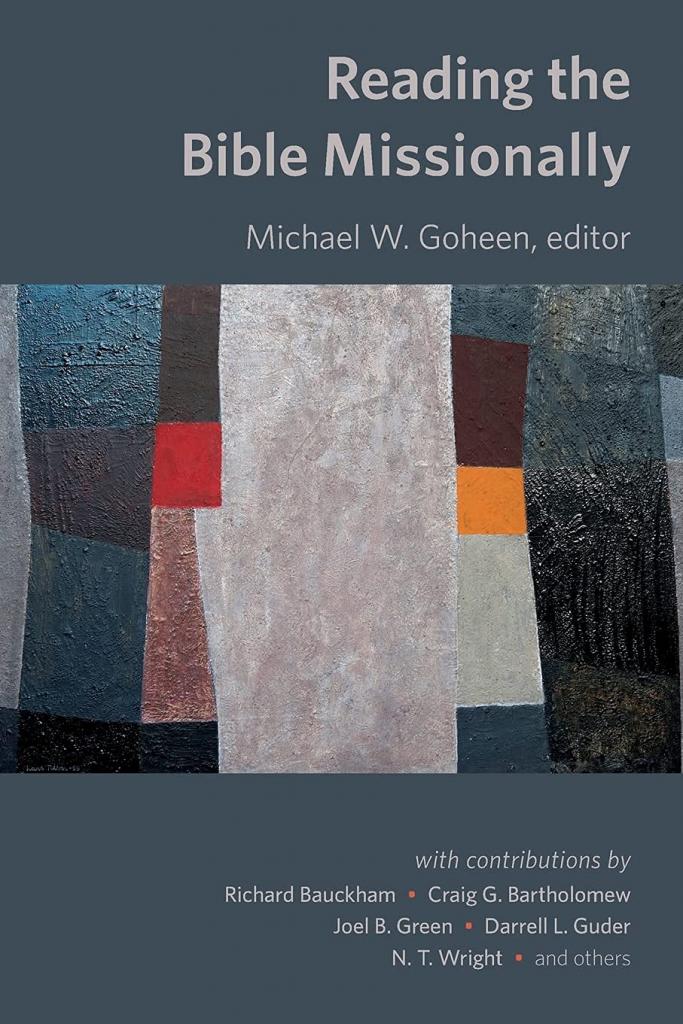 “Missional theology” is not another term for a “theology of missions.” While concerned with many of the same issues and themes, their basic starting point and framework differ. One writer oversimplifies things when he equates “missional theology” as merely being “theological missiology.”
“Missional theology” is not another term for a “theology of missions.” While concerned with many of the same issues and themes, their basic starting point and framework differ. One writer oversimplifies things when he equates “missional theology” as merely being “theological missiology.”
So, let’s define our terms so that we begin from the same spot. “Missions” (with an s) involves the sending of missionaries cross-culturally for the sake of proclaiming the gospel. “Mission” (without the s) refers to the purpose of God in the world since creation and in which God invites his people to participate.
Missional theology highlights the latter, speaking to various aspects of God’s mission within creation. It begins with understanding Creator as a missional God. (You might have heard of the term missio dei, i.e., the mission of God.) John Franke summarizes,
The starting point for missional theology is the notion of a missional God. This means simply that God is, by God’s very nature, a missionary God. In a more classical theological rendering, it means mission is an attribute of God. From this perspective, according to South African missiologist David Bosch, “mission is not primarily an activity of the church, but an attribute of God. God is a missionary God.”[1]
With that said, what implications does “missional theology” have for biblical interpretation?
Interpreting the Bible Missionally
This post spotlights four ways people answer that question. I draw from George Hunsberger’s apt summary of each approach.
-
The Bible has a missional orientation
According to this view, “The framework for biblical interpretation is the story it tells of the mission of God and the formation of a community sent to participate in it.” Hunsberger cites Christopher Wright (in his The Mission of God) as an exemplar of this perspective.
In essence, this viewpoint is the premise underlying all missional theology. Michael Goheen, building on Lesslie Newbigin, has advanced the claim that the entire Bible tells a single story such that all the parts only make sense in light of God’s mission. The mission of the church stems from the mission of God.
-
The Bible has a missional purpose.
Hunsberger summarizes a second perspective saying, “The aim of biblical interpretation is to fulfill the equipping purpose of the biblical writings.” This view provides a more focused lens for reading Scripture. It matters for interpretation to know that the ancient authors intended their words to prepare the church to engage in God’s mission.
Representative of this approach, Darrell Guder says, “How did this text equip and shape God’s people for their missional witness then, and how does it shape us today?”[2] Questions like this provide integral clues for discerning the meaning of a text within its original context.
-
The Bible is interpreted in cultural contexts
This viewpoint insists that we take seriously the location or context of biblical interpreters. The church is called to read Scripture in community, which is embedded within concrete historical and social settings. Accordingly, Barram asks, “How shall the church read the Bible faithfully today?”[3]
In short, this approach emphasizes the contextual nature of God’s people and his ongoing mission. Thus, we should expect our reading of the Bible to challenge conventional assumptions about life and ministry. It ought continually to shed light on overlooked sins and opportunities to serve our neighborhoods. The Scripture must not be regarded as an abstract philosophical text whose meaning is confined to individuals’ private lives.
-
The Bible engages cultures
The fourth proposal explores how the biblical writers interacted with the cultures around them as the church sought to faithfully join in God’s mission. In so doing, contemporary believers may discern how the Bible similarly engages culture today.
Interestingly, Hunsberger underscores the work of biblical scholars, like Ross Wagner, who explain how biblical writers creatively employ the Hebrew Bible (i.e., the Old Testament) to their New Testament context. The strategic use of Scripture illustrates how we might more robustly apply biblical teaching for the sake of the church. One scholar says,
“While traditional biblical criticism asks, ‘which hermeneutic is most qualified to understand the Scriptures?’ missional hermeneutics asks instead, ‘what kind of community does a faithful hermeneutic foster?’ ”[4]
A False Choice
These four proposals are complementary, not mutually exclusive. Hunsberger’s survey above reminds us about what is at stake when we think about the relationship between biblical interpretation and mission(s).
Unfortunately, many so-called “missional” churches in practice tend to be apathetic with respect to cross-cultural missions. Those who stress the latter get nervous about using “missional” language, thinking that it is a slippery slope leading to a neglect of cross-cultural missions. Still, mental habits are hard to break.
We can have both. “Missions” is a subset of God’s “mission.” If we talk only about missions, we’ll easily overlook other aspects of the church’s mission. I’ll conclude with two ideas worth further discussion.
- We compromise our role in God’s mission when we settle only on speaking about missions.
- Understanding the larger context of God’s mission should inform our cross-cultural missions strategies.
It’s time for personal reflection. How has your view of mission(s) affected your reading of Scripture? Which of the four proposals above should you spend more time thinking about?
You might also be interested in my article “Not Everyone is a Missionary . . . And That’s OK.”
[1] Likewise, “Missional theology is not ‘theology of foreign missions’; it’s an exploration of the character of God, who is a God on a mission.” See Dr. Todd Mangum, Why We Teach “Missional Theology” rather than “Systematic Theology” (blog 06 December 2011, Biblical Seminary, Hatfield, Pennsylvania).
[2] Darrell Guder, Unlikely Ambassadors: Clay Jar Christians in God’s Service (Louisville, KY: Office of the General Assembly, Presbyterian Church U.S.A., 2002), 5.
[3] Michael Barram, “The Bible, Mission, and Social Location: Toward a Missional Hermeneutic.” Interpretation 61, no. 1 (January 2007): 42-58.
[4] Colin Yuckman, “An Ulterior Gospel: The Mission of Critical Hermeneutics and the Critical Hermeneutics of Mission.” Unpublished manuscript. 2005.













